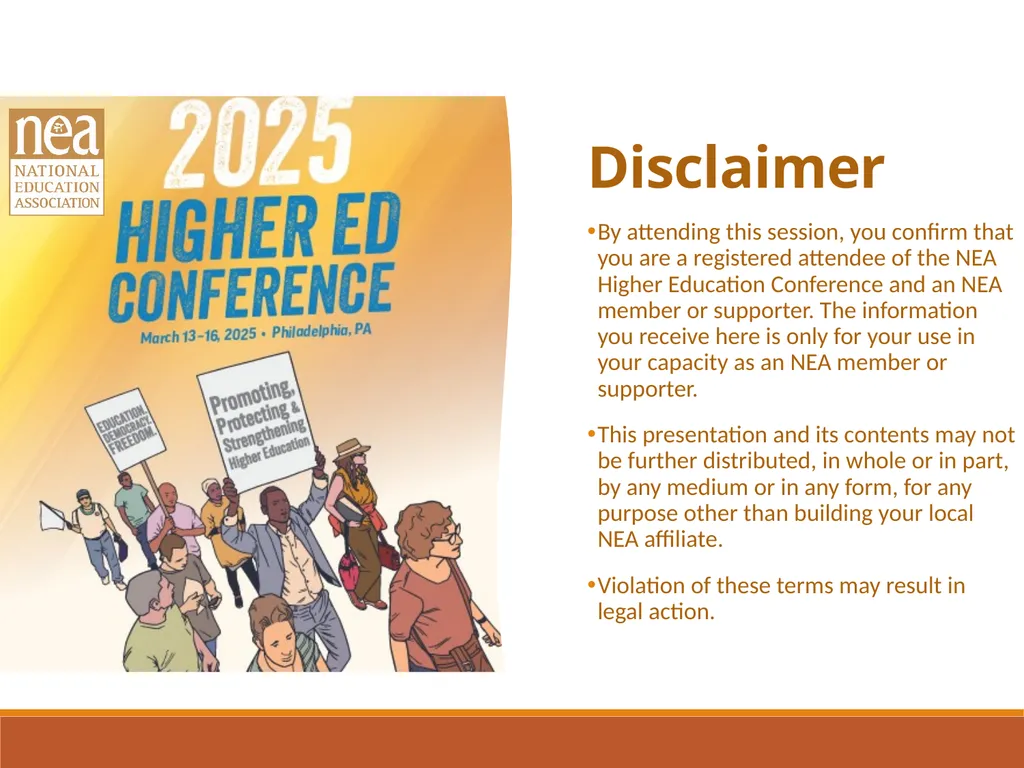
Author : calandra-battersby | Published Date : 2025-05-28
Description: Disclaimer By attending this session, you confirm that you are a registered attendee of the NEA Higher Education Conference and an NEA member or supporter. The information you receive here is only for your use in your capacity as an NEADownload Presentation The PPT/PDF document "" is the property of its rightful owner. Permission is granted to download and print the materials on this website for personal, non-commercial use only, and to display it on your personal computer provided you do not modify the materials and that you retain all copyright notices contained in the materials. By downloading content from our website, you accept the terms of this agreement.
Here is the link to download the presentation.
"Disclaimer By attending this session, you confirm"The content belongs to its owner. You may download and print it for personal use, without modification, and keep all copyright notices. By downloading, you agree to these terms.













